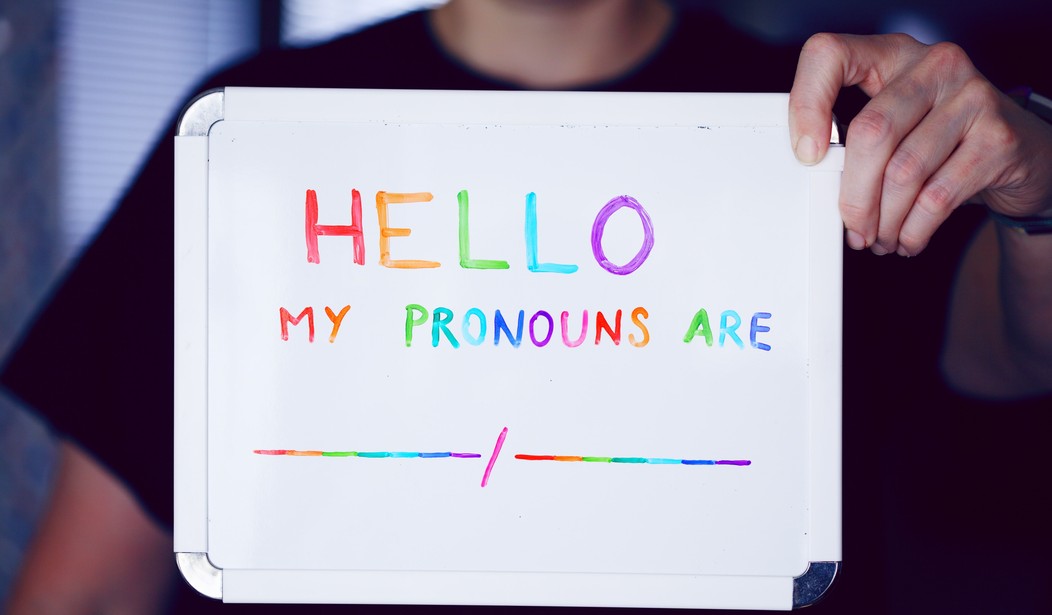A groundbreaking new study from Finland sheds some more light on the danger that “gender-affirming care” poses to children suffering from gender dysphoria. Over recent years, progressive proponents of using these questionable treatments have deceptively argued that they are beneficial to the mental health of children and instrumental in decreasing suicide deaths.
However, this study casts doubt on the notion that puberty blockers, hormone treatments, and surgeries for minors are helpful ideas. It also further explains why so many European nations like Finland have begun moving away from the “gender-affirming care” model and emphasizing alternative treatments for children.
The study analyzed outcomes of adolescents and young adults who underwent “gender-affirming care" between 1996 and 2019. Researchers dove deep to discover an answer to a question that has been debated for years: Do these treatments actually help minor patients?
Researchers tracked the mortality rates of 2,083 individuals under the age of 23 who were referred for gender services and compared them with a control group of 16,643 people. The findings were quite enlightening: “Out of 55 deaths in the study population, 20 (36%) were due to suicide.”
The all-cause mortality, which refers to deaths from all causes, did not differ substantially between gender-referred children and the control group (0.5 percent vs 0.3 percent). The proportion of suicides was only slightly higher among those who sought gender services (0.3 percent vs 0.1 percent).
However, unlike other studies, this one looked at the impact of psychiatric morbidities on suicides and revealed a tidbit that those on the left don’t often mention.
Only one study attempted to consider the role of psychiatric morbidity in suicide risk and in it the suicide rate among transgender adults who underwent GR (gender reassignment) surgery was approximately three times higher than that of matched controls after accounting for psychiatric morbidity.
Despite the lack of studies on psychiatric morbidity in the context of GD, it remains that psychiatric morbidity is a well established predictor of suicide, a major confounding factor, and 20–80% of young people seeking gender identity services present with psychiatric morbidities.
This is a direct challenge to the oft-repeated narrative that “gender-affirming” treatments save the lives of transgender youths and underscores the need for alternative methods. The researchers suggested that members of the medical profession should focus more on exploring the effect of other mental health issues plaguing those who are dealing with gender confusion.
Furthermore, the report argues for a more nuanced understanding of the outcomes of various treatments.
Most importantly when psychiatric treatment needs sex, birth year, and differences in follow-up times were accounted for, the suicide mortality of both those who proceeded and did not proceed to [gender reassignment] did not statistically significantly differ from that of controls.
The Finnish study offers some invaluable insights into the issues surrounding the treatment of gender dysphoria and provides a valid counterpoint to those claiming that pushing medical treatments that could have irreversible effects on children is somehow beneficial. It is not the first study revealing that using the methods preferred by progressives is harmful. The United Kingdom’s National Health Service published the findings of another study also challenging “gender-affirming care.”
Yet, for the most part, the studies casting doubt on these treatments have been ignored by the media and the politicians who support them. Even though the World Health Organization has begun questioning “gender-affirming care” after having adamantly supported it, America still has not yet caught on to the reality that these treatments do more harm than good.
This leaves us with one pressing question: How many studies revealing the dangers of “gender-affirming care” for children will it take before progressives finally abandon the effort to trans them?












